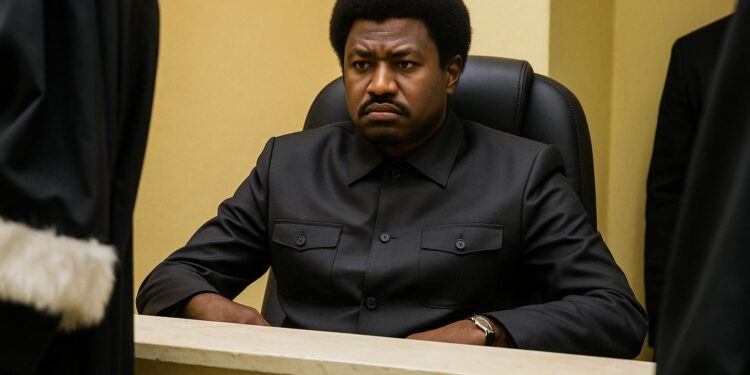A High-Profile Verdict in Kinshasa
In a packed courtroom on 2 September 2025, the Democratic Republic of Congo’s Court of Cassation handed former justice minister Constant Mutamba a three-year term of forced labor followed by five years’ bar from public office. Journalists from regional outlets described hushed silence when the decision was read (Les Echos du Congo-Brazzaville).
From Reformist Image to Courtroom
Mutamba, 37, entered the government in 2024 portraying himself as a champion of legal modernization. His rapid rise made him one of the youngest cabinet members in recent Congolese history. Analysts now debate how a portfolio meant to embody ethical renewal became the center of a corruption narrative (Radio Okapi).
Inside the Allegations
Prosecutors alleged that nearly 20 million US dollars earmarked for a new maximum-security prison in Kisangani were about to be siphoned off through shell companies. Financial investigators traced early disbursements to accounts allegedly linked to close associates, triggering a probe that moved swiftly from administrative audit to criminal indictment.
The Judicial Process
The Court of Cassation, the DRC’s highest criminal jurisdiction for public officials, sat in first and last resort. Proceedings unfolded over eight public hearings, allowing testimony from treasury inspectors, construction firms and two whistle-blowers granted anonymity. Observers from the United Nations Joint Human Rights Office monitored each session for due-process compliance.
Defense Team’s Critique
Mutamba’s lawyers argued that the case was rushed, citing incomplete forensic accounting and what they called procedural “shortcuts”. “The justice system is sick,” attorney Célestin Banza told reporters after sentencing, vowing to explore extraordinary remedies before regional courts. Their statement hints at a possible appeal to the African Court on Human and Peoples’ Rights.
Public Opinion and Media Coverage
Congolese social media paid close attention, with hashtags blending calls for accountability and concerns over selective prosecution. Independent daily Actualité.cd noted that many citizens welcomed the verdict yet remained skeptical about broader institutional reform. For Kinshasa’s political class, the case became a barometer of the administration’s capacity to withstand scrutiny.
Institutional Significance
Legal scholars stress that convicting a sitting or recent minister is rare in the DRC. The decision may reinforce the authority of oversight bodies like the Cour des Comptes, which had flagged budgetary anomalies months earlier. Diplomatic missions view the ruling as a test of the state’s commitment to transparent fiscal governance.
Implications for the Anti-Corruption Agenda
President Félix Tshisekedi’s government has sought to reassure donors since 2019 through high-profile trials and auditing initiatives. The Mutamba judgment could strengthen negotiations with the International Monetary Fund, which has conditioned financing on demonstrable progress against graft. However, follow-through on asset recovery will be watched as closely as the verdict itself (IMF staff reports).
Regional Ramifications
Neighboring Congo-Brazzaville, whose authorities maintain cordial ties with Kinshasa, discreetly welcomed the emphasis on rule of law, diplomats say. In Central Africa’s integrated banking zone, perceptions of legal predictability influence cross-border investment flows. A Kinshasa precedent may thus ripple into due-diligence assessments across the Economic Community of Central African States.
Looking Ahead
Under Congolese procedure, the convicted can apply for conditional release after serving half of the sentence, subject to demonstrated repentance and restitution. Whether Mutamba chooses cooperation or continued legal combat will shape the case’s legacy. For now, the ruling stands as a landmark moment in the DRC’s evolving governance landscape.












































